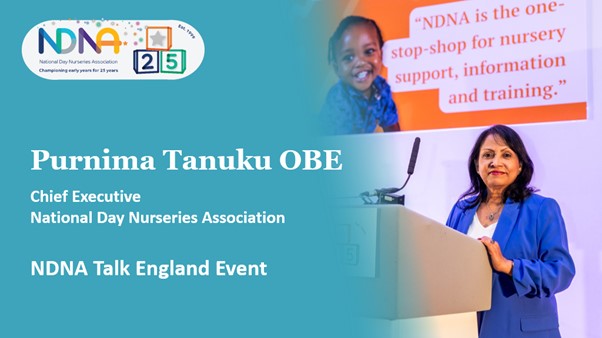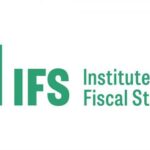
DfE: it’s official childcare places will be called “funded” not “free”
Senior civil servants who attended an NDNA Talk event announced that the Government would be calling 15 and 30 hour childcare places “funded” and not “free”.
Mike Davies, Deputy Director Early Years Markets, Strategy and Workforce and Suzanne Taylor, Stakeholder Lead School-based Nursery Division from the Department for Education gave updates on their latest projects and how they had responded to feedback from the sector over the past few weeks.
Mr Davies said: “We have heard your concerns about the word free with regards to the entitlements and have now shifted to ‘government-funded’ in our communications with parents.”
NDNA’s CEO Purnima Tanuku OBE said: “After many years of campaigning on this issue of wording, it’s a huge relief that the Government is listening to the sector. We hope they continue to work with us on other challenges PVI providers are facing such as the workforce, capital funding and scrapping business rates.
“Calling the funded hours free has led to unrealistic expectations and difficult conversations with parents when nurseries are asking them to pay for meals and other items not included in the funding. This move to calling the hours government-funded should make this situation more straightforward for nurseries and other providers.”
Mr Davies told the event that the new Government was focussing on availability, accessibility and quality of provision. This included driving up standards in early maths. The DfE is working on the new “report card” which will be replacing Ofsted one-word gradings.
They are also committed to growing and promoting the early years workforce and will be reflecting salary costs in the early years funding formula.
Mr Davies also said that the September roll-out had been a big success with more than 200,000 parents securing places for their children. He clarified that the new breakfast clubs, which will be trialled from April, will include PVI providers working with schools to create new provision.
Ms Taylor clarified that the 300 school-based nurseries the DfE is trying to create from September 2025 include new and expanding provision, and can be school-run or delivered by private and voluntary providers on primary-phase school sites. Schools must show a local need for these nurseries, including considering existing sufficiency and involving their local authority.
The DfE answered a number of questions from attendees on the above issues.
The Minister for Early Education Stephen Morgan MP gave a virtual speech at the NDNA Talk event in which he thanked the sector for their hard work and dedication.
He said: “It’s the right title for the job because everyone who works in early years is an educator. You and your staff help children develop their physical, emotional and cognitive abilities. That takes unique skill built through considerable experience and hard-earned qualifications. It’s work that matters and work that I will champion in Government.”
The Minister added that he wanted to include the sector in their plans and he was very interested in hearing providers’ feedback.
Ofsted’s HMI and Principal Officer for Early Education Policy Wendy Ratcliffe, and Jayne Coward, Deputy Director for Early Years Regulatory Policy and Practice attended the event to present their updates.
They spoke about Ofsted’s priorities as a result of The Big Listen which has resulted in plans to reform the regulatory framework and introduce report cards.
Gillian McAteer from NDNA’s corporate partner for HR, health and safety and employment law Citation gave a presentation on essential employment law updates for 2024.
NDNA members can watch and listen to the recording here
Find out more about NDNA membership here
- England
Similar Articles
IFS: This year’s funding rates 22% lower in real terms than in 2017

Disappointment as Scottish Budget fails to address funding system inequalities


